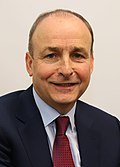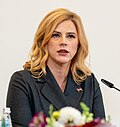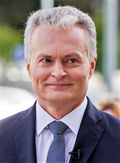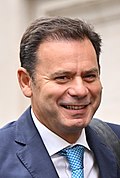This article needs to be updated. Please help update this article to reflect recent events or newly available information.(March 2025) |
Meeting of eurozone member states
Not to be confused with EU summit.
The Euro summit (also referred to as the eurozone summit or euro area summit) is the meeting of the heads of state or government of the member states of the eurozone (those EU states which have adopted the euro). It is distinct from the EU summit held regularly by the European Council, the meeting of all EU leaders.


























